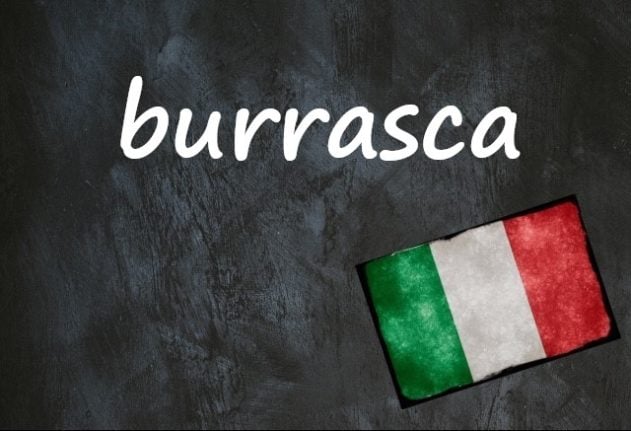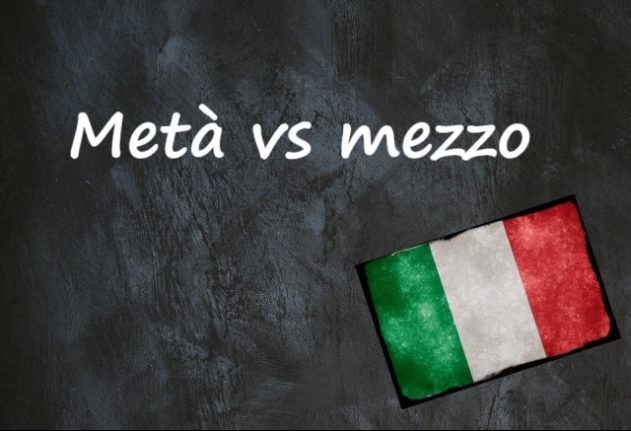Today’s word has become unexpectedly topical again with the wave of bad weather causing floods and landslides in northern Italy: una burrasca literally means ‘a storm’.
It’s not just a few drops of rain we’re talking about: it implies the kind of thing that has you battening down the hatches.
Il servizio meteo nazionale riporta una burrasca a circa 120 chilometri dalla costa est.
The national weather service is reporting a storm around 120 kilometres off the east coast.
While the term is used interchangeably with tempesta and bufera to describe any kind of storm, sticklers would say it should only apply to strong winds – specifically, those we’d call ‘gale force’ in English.
For any classicists out there, the clue is in the name: burrasca comes from the Greek ‘Boreas’, the ancient god of the bitter north wind.
One of the reasons the word comes up so often in Italian news reports is that it’s used especially to describe strong winds at sea which, as you can imagine, are a particular problem in Italy.
A mare in burrusca is a ‘stormy sea’, which is the Italian title of this well-known painting by Gustave Courbet.

If you hear un avviso di burrasca (‘a gale warning’), it’s time to get off the water and move away from the beach.

A headline from the Corriere della Sera: ‘Stormy seas turn deluxe cruise into a nightmare: the storm on the first-class deck’.
That said, as one Italian proverb has it:
l buon pilota si conosce alle burrasche.
A good pilot proves themselves in a storm.
… in other words, skill or courage comes through adversity.
As that saying suggests, weather-talk aside, you can also use burrasca figuratively to describe ‘turbulence’ or ‘trouble’, especially the type that looms ominously on the horizon.
C’è aria di burrasca in ufficio.
There’s trouble brewing in the office.
C’è stata burrasca ieri alla Camera, per la discussione della legge.
There was turbulence in parliament yesterday as the law was discussed.
Do you have a favourite Italian word you’d like us to feature? If so, please email us with your suggestion.
Don’t miss any of our Italian words and expressions of the day: download our new app (available on Apple and Android) and then select the Italian Word of the Day in your Notification options via the User button.



 Please whitelist us to continue reading.
Please whitelist us to continue reading.
Member comments